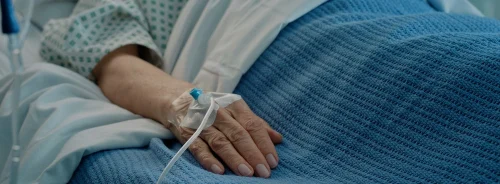ICU Management & Practice, ICU Volume 5 - Issue 3 - Autumn 2005
Author
Jan C. F. M. Aghina
Director of the National association of healthcare institution directors (NVZD)
Correspondence
Website
Healthcare in the Netherlands is undergoing considerable changes. Dr Aghina describes some of the current trends and
their implications on care provision.
Functions of Primary and Secondary Healthcare
In the Netherlands, most questions and complaints concerning physical and mental health are directed towards a primary healthcare provider (General Practitioners, physiotherapists, pharmacists). A strong primary healthcare is therefore an essential pillar of efficient healthcare. Primary healthcare professionals are the gatekeepers to specialist care and prevent unnecessary (and costly) medical care.
Primary healthcare has a large number of tasks: providing information, giving advice about self-care and prevention, nursing and caring, diagnosing and treatment. Additionally, primary healthcare is responsible for the management of medical records and referrals to medical specialists. Based on a new legislation effective from 2006, the communities will organise some parts of the care for elderly and disabled persons.
Co-operation
In the future, as co-operation between primary and secondary healthcare improves, the importance of primary healthcare will increase further. An example of this is the consultation between professionals in primary and secondary healthcare, which has already been implemented successfully in mental healthcare. Possibilities for consultation will increase because of telemedicine, the electronic assessment of medical questions.
Personal Responsibility
In principle, citizens are responsible for their own health. Where physical and mental symptoms are concerned, a citizen can decide for him- or herself whether or not to seek primary healthcare. Primary healthcare stimulates this (re-)taking of the patient’s personal responsibility, the prevention of disease, the recuperation and revalidation, and adaptation to a chronic disease or handicap. Primary healthcare must be offered according to demand, must be reachable (close by), must be organised efficiently, and must provide care of high quality. The new HealthInsurance Act no longer differentiates between two groups of citizens based on their income. The “privately insured” and those funded by “sickness funds” will both have the same arrangements. If the costs for this new insurance are too high for an individual, the government will reimburse costs.
The Status of General Hospitals
The hospital sector is characterised by its dynamic nature. The demand for care and the provision of care by hospitals influence each other greatly, and this influence is becoming more and more direct.
New developments, possibilities and issues related to the demand for care (patient rights, a multicultural society, growth in prosperity, and an ageing population), the supply of care (explosive growth of technology and scientific knowledge, professionalisation, micro-specialisation and multidisciplinary collaboration), and care policy (the administrative process of localisation and deregulation, the rise of the integrated medical specialist company, the establishment of the chain of care, the boom in inter-facility care and the process of economies of scale) demand a new look at the status, administration, quality, organisation and accessibility of the hospital sector.
The Hospital as an Integrated Medical
Specialist Company
The next few years will see a continuation of the transformation of the hospital into an integrated medical specialist company. The concept is based on the patient-driven demand for care and will allow all the care processes both inside and outside the hospital to be organised around the patient. What this means is that there will be a whole spectrum of care that progresses from general, to inter-facility to specialised care.
Functions and Duties of the Hospital
Even though the administration, organisation and working practices of hospitals are facing enormous changes, the primary duty of the hospital will not change.
The hospital will still be a primary care facility that provides specialist medical care in combination with associated services. In order to realise improvements such as faster treatment and processing of patients, providing care closer to home and improving the match between the supply and demand, the current working practices and care processes need to be streamlined. In order to achieve a fluid transition from primary to secondary to tertiary care, the existing barriers have to be eliminated and all providers must actively want to collaborate with one another.





